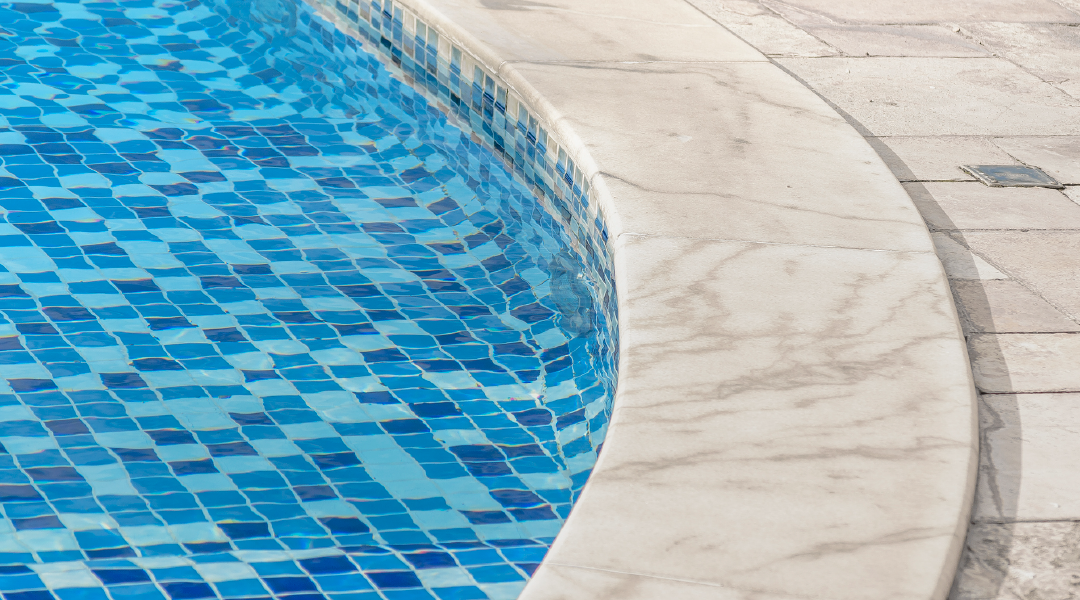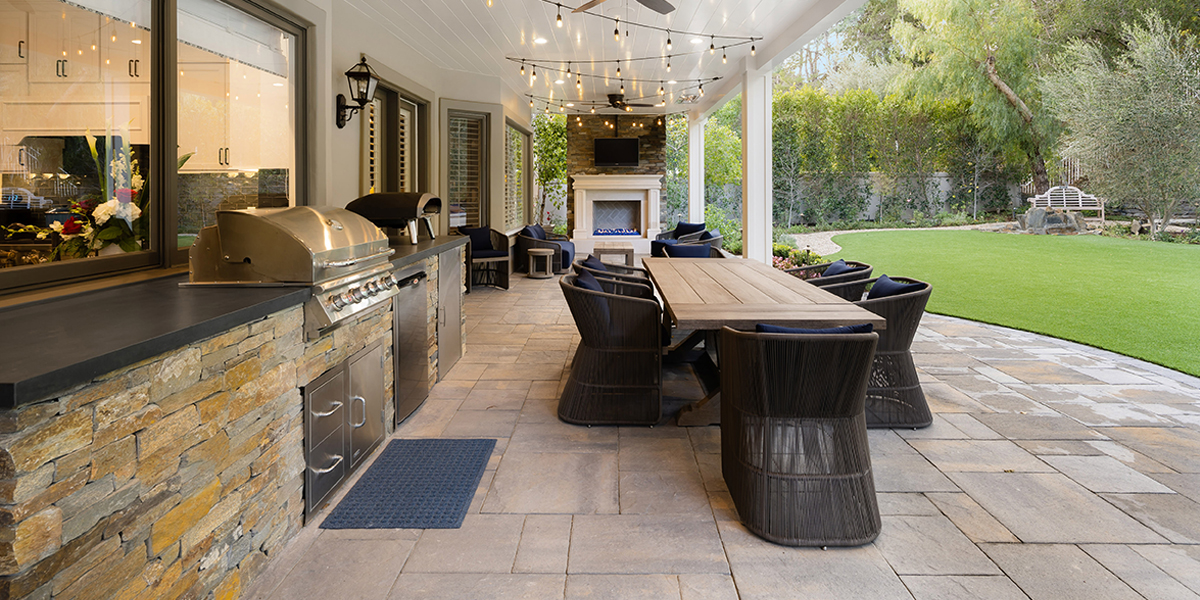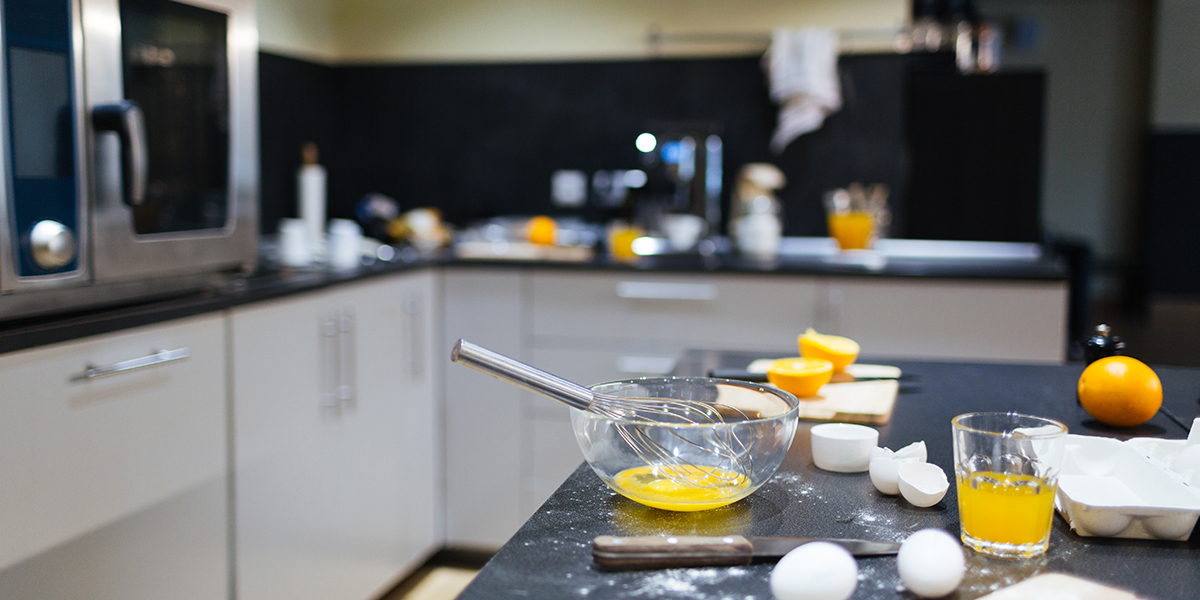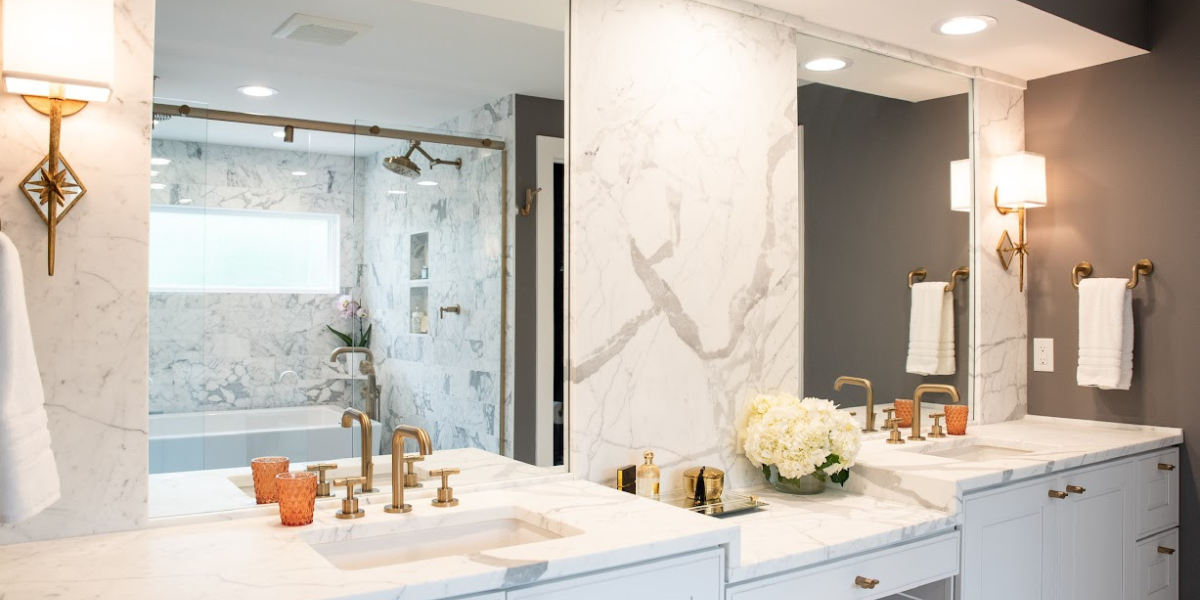For many homeowners, a swimming pool is viewed as a luxurious investment fit for relaxation and unwinding. Yet, when it comes to your outdoor living space and the construction of your swimming pool, there are many materials you can consider. In this blog, we will discuss the best stone for pools, the benefits of using natural stone as well as the care and maintenance required.
>> Download Our Natural Stone Care Guide — Click Here <<
Types of Stone for Pools
Known for being slip-resistant and durable, natural stone is perfect for pool paving and swimming pool floors. Here are the most popular types of stone that are used for building pools:
Travertine
- Travertine is frequently used in both interior and exterior construction and will provide an elegant look for your pool deck. Typically found in variations of beige, brown, taupe, and grey, its warm tones make it very versatile in design. Travertine is also very water absorbent, slip-resistant, and can handle various weather conditions.
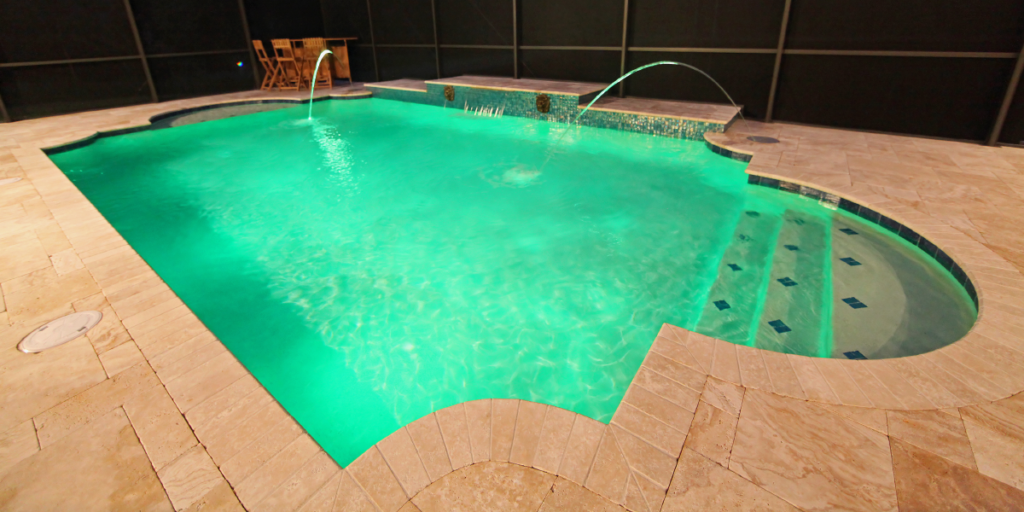
Unpolished travertine has a nonslip texture which makes it suitable for showers, pools, and bathrooms.
Slate
- Slate is a popular choice for stone decking. Slate is a type of flagstone that is heavy, durable, easy to install, and can be cut to varying lengths and widths. This stone is also available in a wide range of colors from dark black, brown, and red to rust, purple, and blue-grey.
Limestone
- Similar to travertine, limestone is used extensively in both indoor and outdoor projects. Many pool designers use limestone for decking and pool coping due to its beauty and lasting durability. Limestone is also available in a variety of colors including gray, blue, tan, and brown to name a few, and can be cut to a variety of shapes and sizes for your project.
Granite
- Known for being one of the hardest natural stones, granite is a popular choice for pools primarily for its ability to stand the test of time. Granite is a very versatile material and can be used in a variety of settings for decking and paving. While it is primarily dark in color with a shiny finish, granite is great for creating an elegant look with water-resistant properties.
Quartzite
- Quartzite is a natural stone that commonly used in swimming pool floors. With various finishes and tones such as beige, pink, green, and white, quartzite can add a pop of color to your pool. Quartzite is compared to granite in terms of hardness, durability, and moisture resistance.
Benefits of Using Stone for Swimming Pools
When it comes to choosing the type of material to use in constructing your pool, the benefits that natural stone provides are unbeatable.
- Waterproof
- The swimming pool is a large wet area which means that the ground, sidewalls, and decking should be waterproof. Natural stones have waterproof and absorption capabilities that allow them to not be damaged in this setting. In order to prevent damage, we recommend coating and sealing your stone to ensure that the pool and surrounding area are completely waterproof.
- Easy Maintenance
- Like countertops, cleaning natural stone is easy with minimum tools and chemicals. To ensure that your stone in and around your pool will last we recommend the following:
- Seal the stone following installation,
- Manage your water level to be around 10 cm below the pool’s coping to avoid submersion or drying
- Remove debris to avoid staining
- Clean your stone with a pH-neutral cleaner
- Like countertops, cleaning natural stone is easy with minimum tools and chemicals. To ensure that your stone in and around your pool will last we recommend the following:
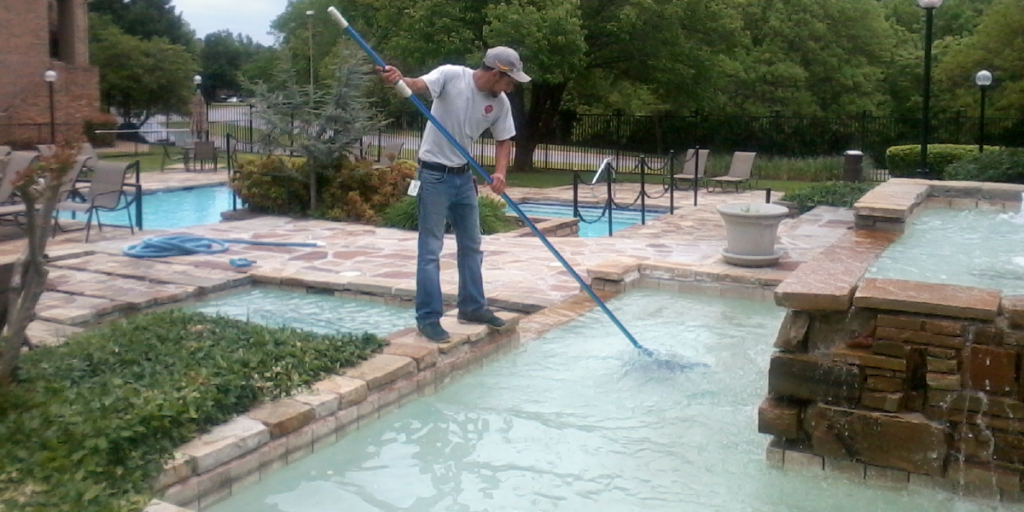
Properly caring for and cleaning your pool will extend its life.
- Durable and Sturdy
- Natural stones are a long-lasting construction material compared to other commonly used materials such as bricks. Whereas bricks may last a few decades, natural stone can last centuries. Its hardness, durability and sturdiness make it a prime material for use in the construction of your pool.
- Heat and Frost Resistant
- Living in the Midwest, we can experience hot summers and cold winters which means ensuring that the material must withstand freezing, thawing, and scorching heat. Many stones are considered heat resistant and can even be comfortable to walk barefoot on during the summertime.
- During the winter months, swimming pools in cold areas can experience freeze and thaw cycles. When a material is constantly shifting, it can damage the flexural strength of the material. As the snow melts, you can easily wash away or clean the frost.
When it comes to the best stone for pools, there is a wide array of options available. If you’re interested in learning more about constructing a natural stone pool – contact a member of our team today. We are always happy to help!


